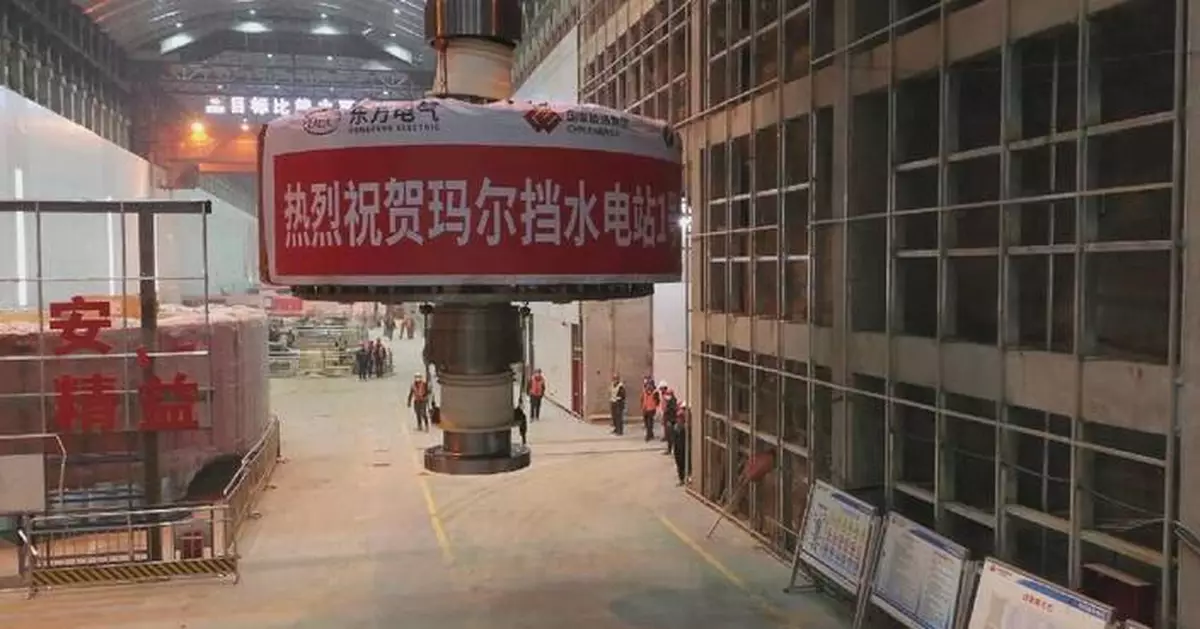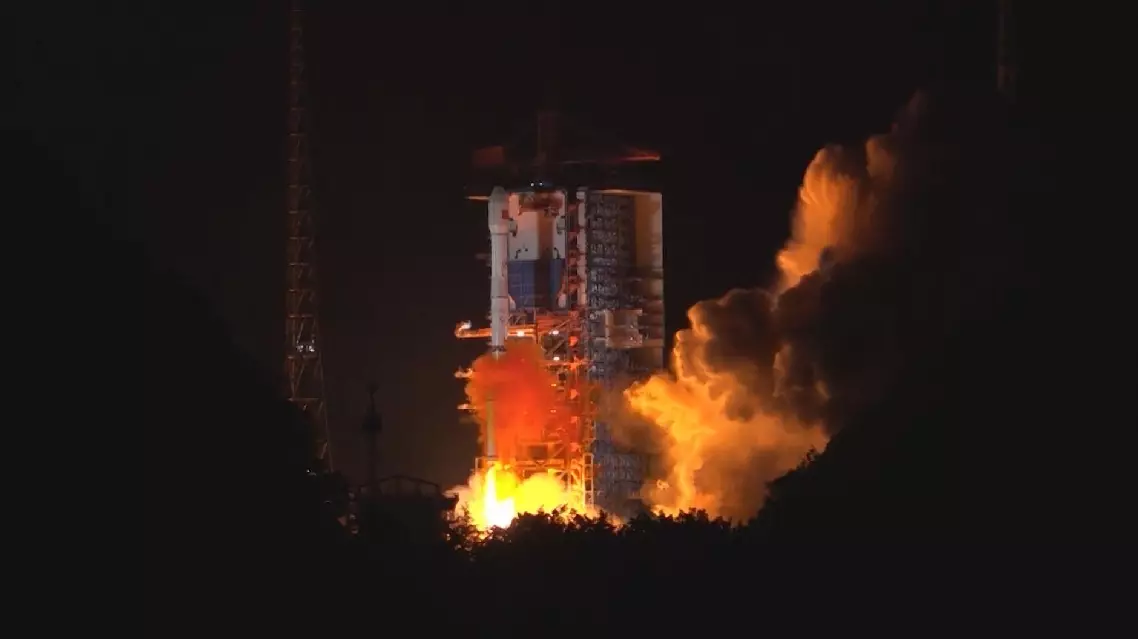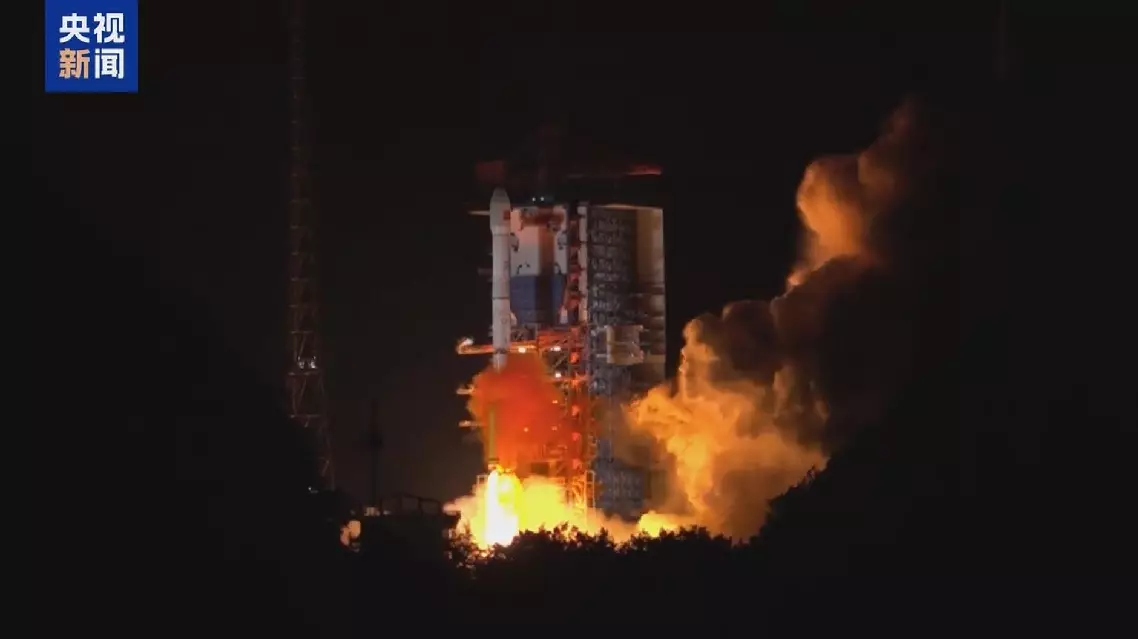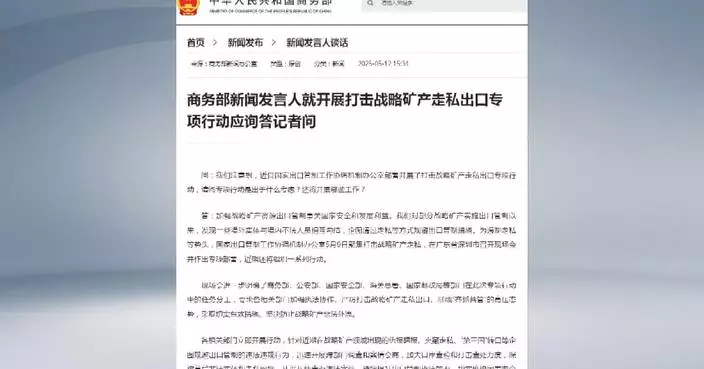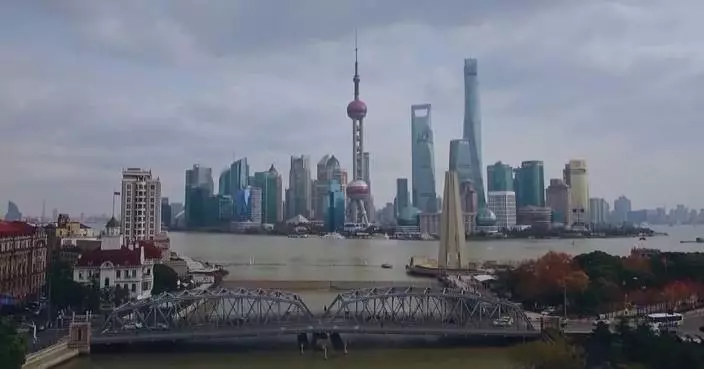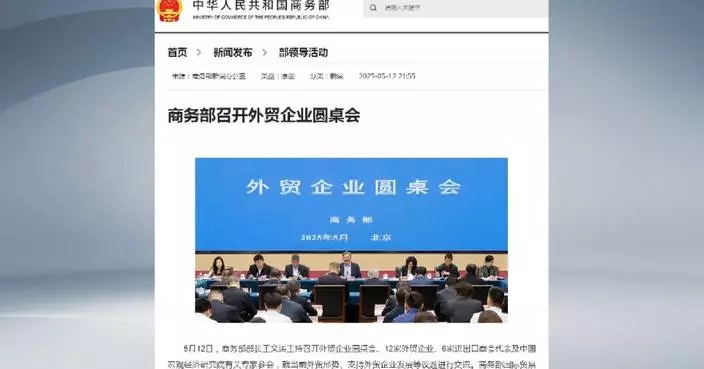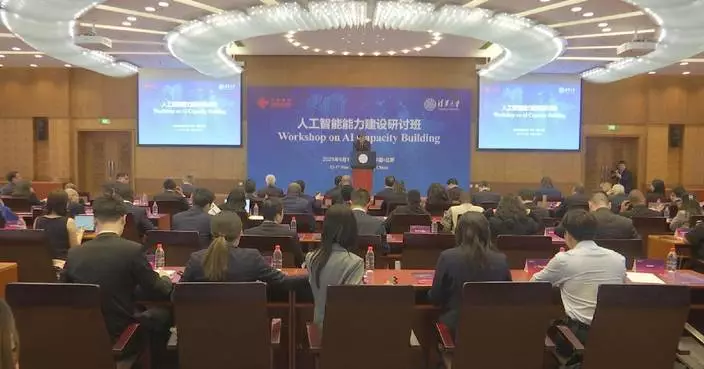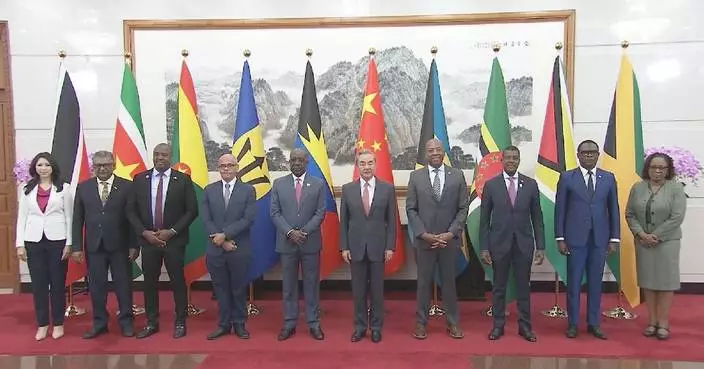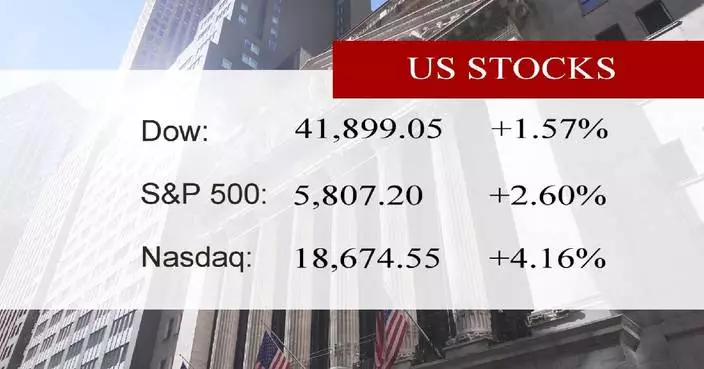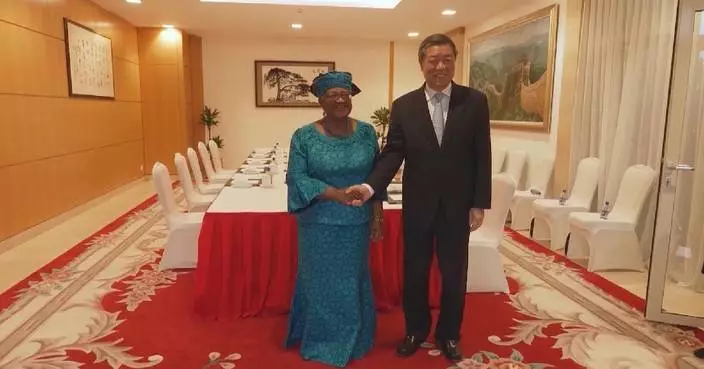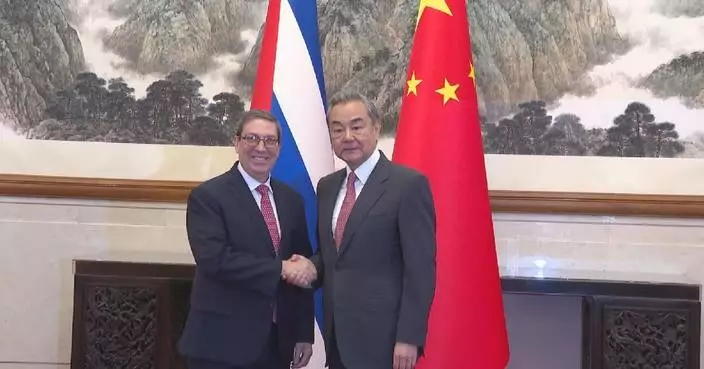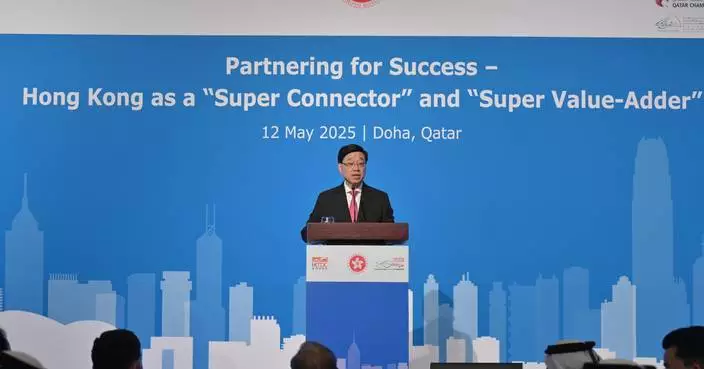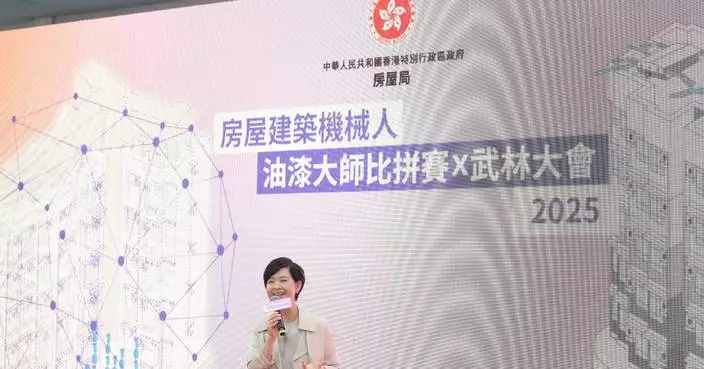The first unit of China's Maerdang Hydropower Station, the highest-altitude facility of its kind with the largest installed capacity in the Yellow River basin, saw the successful hoisting of its generator rotor into position, paving the way for the entire station to be operational by the end of the year.
The giant rotor, with a total weight of 270 tons, is the core component of the water-turbine generator set. The rotor hoisting, demanding precision and skill, took 40 minutes to complete and is a key step in the unit's installation.
Located at an average altitude of 3,300 meters in northwest China's Qinghai Province, the Maerdang Hydropower Station has a total installed capacity of 2.32 million kilowatts and five hydropower generating units, which makes it a major power provider in the "west-to-east power transmission" project.
With all units put into use in December, the station is expected to generate an average of 7.3 billion kWh of electricity annually, reducing carbon dioxide emissions by about 8.16 million tons each year.
The construction marks a milestone in Qinghai's new energy development and will facilitate the establishment of more clean energy bases in the upper reaches of the Yellow River.

China's high-altitude hydropower station unit enters final assembly stage


